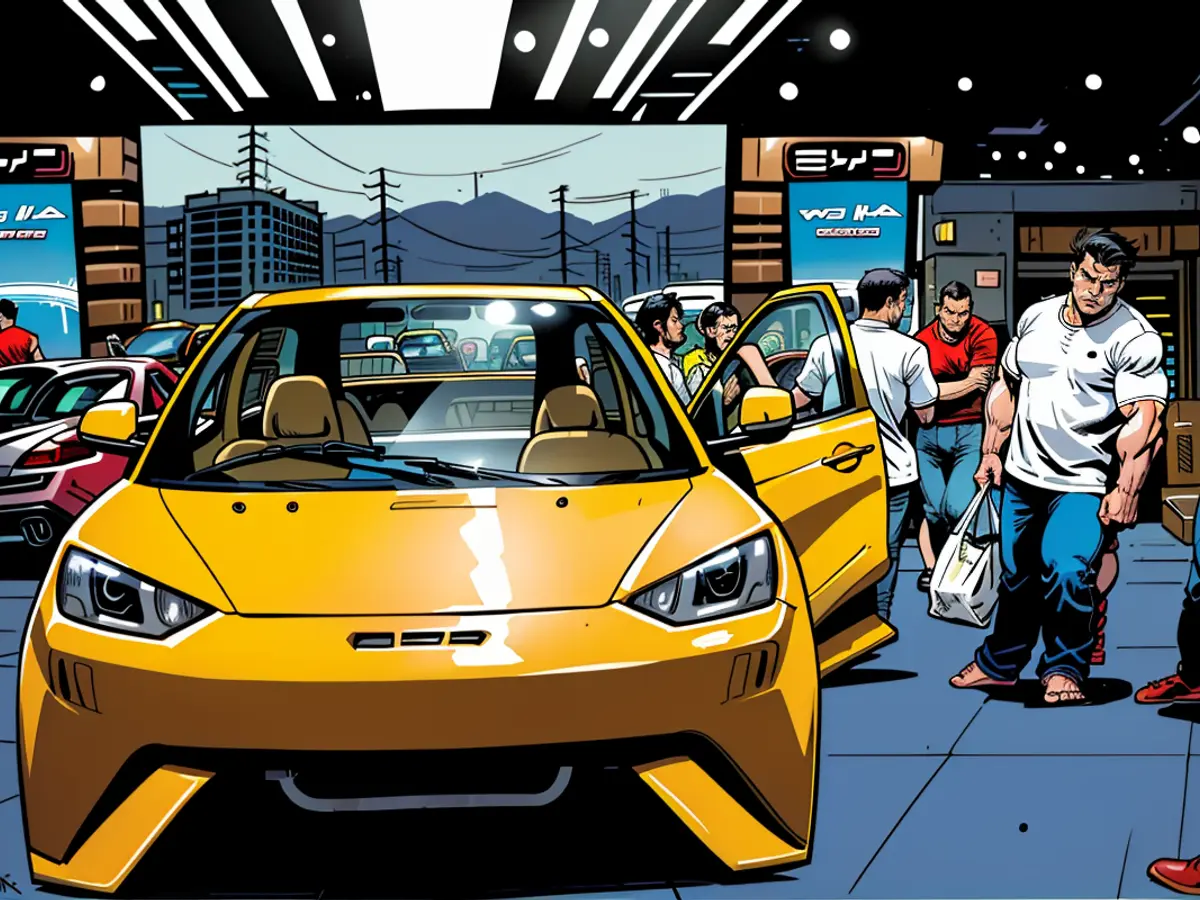Brussels gets serious about e-car tariffs - Berlin hopes for negotiations with China
The new tariffs vary from one manufacturer between 17.4 and 37.6 percent and in addition to the existing ten percent import tariffs. Companies are not required to pay the new tariffs yet, but they must deposit corresponding guarantees when importing cars.
Brussels, according to its own statements, is reacting to distortive subsidies for Chinese companies at the expense of European manufacturers. A commission investigation confirmed this in mid-June, and the temporary additional tariffs were announced. Negotiations with Chinese authorities and manufacturers were still ongoing until early July.
The tariffs are lower than announced. The Chinese manufacturer BYD's tariffs are expected to be 17.4 percent, 19.9 percent for the Geely Group, and 37.6 percent for SAIC. Companies such as BMW or Tesla must reckon with a tariff of 20.8 percent when exporting from China to the EU.
Brussels is following the US, which announced in mid-May an increase in tariffs on Chinese electric vehicles from 25 to 100 percent. It is expected that Chinese exports to the EU will increase noticeably as a result.
According to industry estimates, Chinese-made electric cars account for nearly 22 percent of the European market, compared to less than three percent three years ago. Chinese brands account for eight percent of the electric cars sold in the EU.
The German automotive industry produces a lot in China, and German Chancellor Olaf Scholz (SPD) criticizes the additional tariffs. The German automobile industry association VDA criticized the tariffs on Thursday as a "protectionist measure" that risks a trade conflict. Brussels and Beijing must now "do everything to find a constructive solution in open and constructive dialogue," demanded VDA President Hildegard Müller.
The Chinese Chamber of Commerce at the EU accused the commission of a "politically motivated" step. At the same time, it expressed readiness for further negotiations for a "constructive solution."
Chinese manufacturers also hope for a negotiated solution. They do not want to withdraw from the European market despite the Brussels decision, as companies like Nio and XPeng stated to AFP in China.
Criticism came from the FDP, with the deputy parliamentary group leader in the Bundestag, Lukas Köhler, stating, "Penalty tariffs are not the right way to deal with China." However, his party colleague Reinhard Houben told the Düsseldorf "Rheinische Post" that he was optimistic, "that by November a negotiated solution will be found." The Greens support the EU decision. "These tariffs are not penalty tariffs, but WTO-compliant countermeasures," explained Bundestag member Sandra Detzer.
Other German economic sectors had expressed understanding for the EU decision in advance. The German Industry and Trade Chamber (DIHK) and the Federation of German Industries (BDI) confirm this now. However, it is important to "maintain a balance between necessary protective interests and the important openness for our export industry," stated DIHK CEO Martin Wansleben. The BDI called on the EU Commission and EU member states to "demonstrate closed unity externally."
- The Federal Government in Brussels has announced temporary additional tariffs on imports of cars from China, in response to subsidies given to Chinese companies by the Chinese government.
- SAIC, a Chinese automobile manufacturer, is expected to face the highest tariff of 37.6%, while BYD is expected to pay 17.4% and Geely Group 19.9%.
- BMW and Tesla, both German and American companies, will have to pay a tariff of 20.8% when exporting their electric cars to the EU.
- The Chinese Chamber of Commerce at the EU has accused the commission of a "politically motivated" step, but is also ready for further negotiations.
- Chinese manufacturers like Nio and XPeng have stated that they do not want to exit the European market despite the Brussels decision.
- The German automobile industry association VDA criticizes the tariffs as a "protectionist measure" that risks a trade conflict and calls for constructive dialogue between Brussels and Beijing.
- The FDP in Germany has expressed criticism of the tariffs, but believes that a negotiated solution can be found by November.
- Other German economic sectors, such as the German Industry and Trade Chamber (DIHK) and the Federation of German Industries (BDI), have indicated their support for the EU decision, stressing the importance of balancing protective interests with export industry openness.







